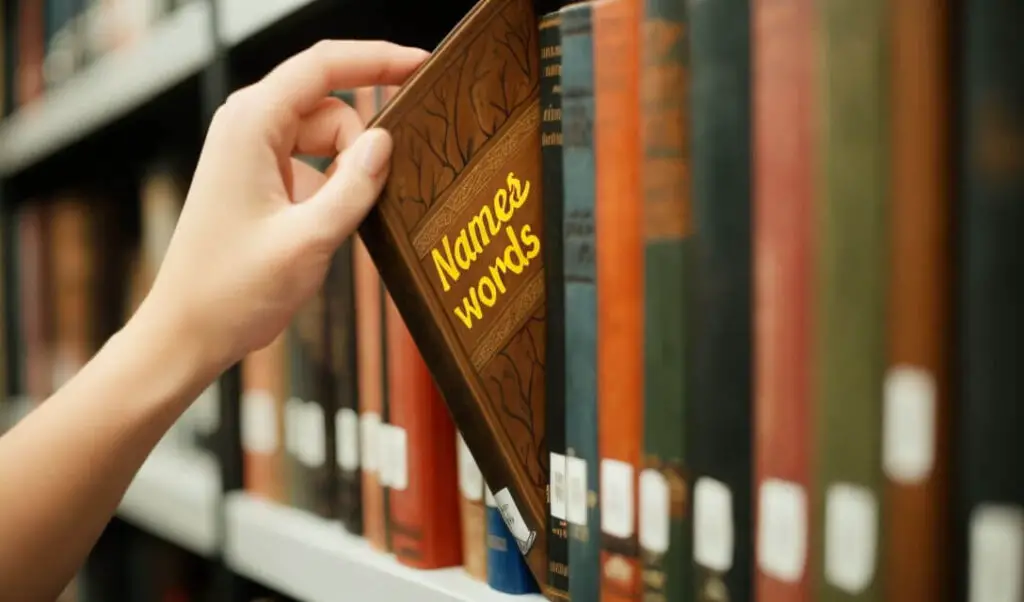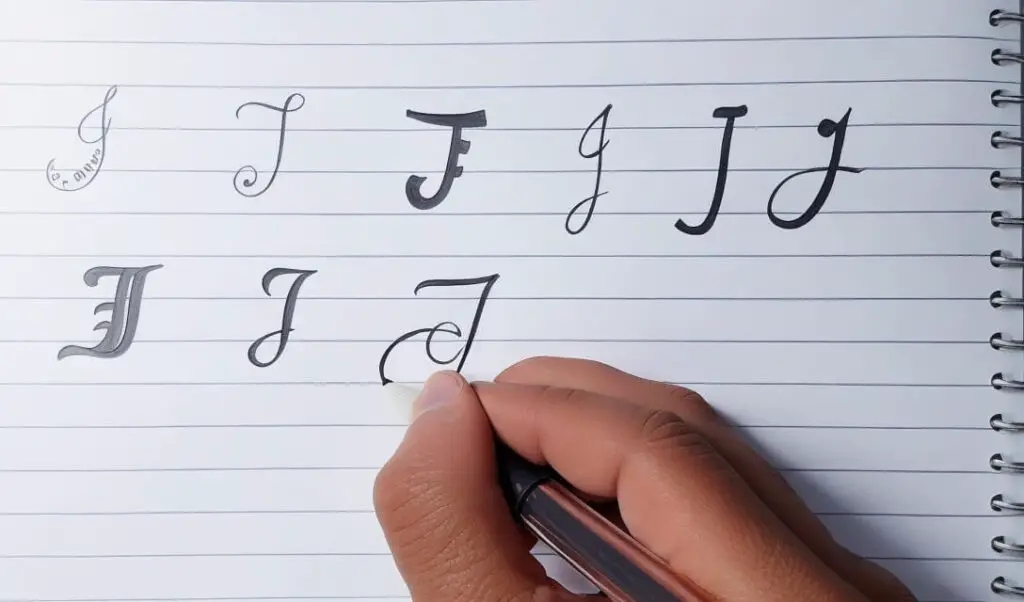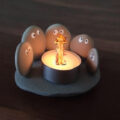Stepping into the realm of alphabets and linguistics, it’s impossible not to be intrigued by the remarkable character that is the letter J. Standing proud as the tenth member of the English alphabet, the letter J has its own unique narrative and nuances. It doesn’t simply serve the practical purpose of linguistics but holds a fascinating place in our history, culture, and spiritual discourse. In this comprehensive exploration, we will weave through the different aspects that make this letter as fascinating as it is.
The History and Origin of the Letter J

The journey of the letter J is as intriguing as the character itself. Born from the seed of the ancient Semitic writing script around 1000 or 2000 BC, the letter J evolved from the Phoenician letter yodh, which also fathered the Greek Iota and the Latin I and J. The Phoenicians used yodh for the /j/ sound which was similar to the English Y. So, the ancient roots of J actually resonated the sound of a Y.
Over time, the yodh morphed into the Greek Iota and started losing its consonantal sound. When it found its place in the Latin alphabet, the letter I was used both for the vowel /i/ and the consonant /j/. Even so, you may ask, “When was the letter J invented?”. Despite its ancient roots, the letter J in its current form and sound is a relative newcomer to the English language. The distinction between the sounds of I and J was made only in the 17th century. The person who invented the letter J was Gian Giorgio Trissino, an Italian Renaissance grammarian known as the father of the letter J.
Over the centuries, the letter J has seen significant transformation. If you ever wonder, “how old is the letter J?”, remember that while its roots are ancient, its existence as a separate entity is only a few centuries old. The addition of J to the English alphabet signified the language’s ability to evolve and adapt. The evolution of this letter underscores the dynamism of language and its constant state of flux.
The Letter J in Different Languages

The letter J demonstrates remarkable versatility as it moulds itself according to the linguistic structure of different languages. In Spanish, for instance, the letter J pronounces as ‘ho-ta,’ similar to the English H. On the other hand, the Greek alphabet lacks a proper equivalent to J, although the closest phonetically is iota. Latin, which directly influenced many languages, had no J until the Middle Ages and used I instead for the same sound. This variation underscores the adaptability of the letter J and its ability to meld into different linguistic landscapes.
The pronunciation of J is subject to intriguing variation across languages. In French, J has a soft sound, as in ‘Jean.’ German speakers pronounce it like the English Y, while Portuguese and Spanish speakers use a sound similar to the English H. If you’ve ever wondered “how to say the letter J in Spanish?”, it’s quite simple: it’s pronounced ‘ho-ta.’
The Spiritual Meaning of the Letter J

In various spiritual discourses, the letter J assumes a deeper meaning. The alphabetic symbol extends beyond its linguistic role to hold symbolic significance. For instance, in biblical numerology, the letter J is associated with Jesus and is often symbolized as justice, perfection, and completeness. The number ten, which corresponds to J in the English alphabet, denotes divine law, responsibility, and the completeness of order in both the physical and spiritual realms. More about The Spiritual Meaning of the Letter J at our site.
You might ask, “what does the letter J mean in a name?”. When found in names, J often signifies qualities such as justice, journey, and joy. People with the initial J are believed to be hardworking, diligent, and strong-willed. They are often considered leaders, visionaries who are creative and forward-thinking.
The Letter J in Words and Names

The letter J forms the bedrock of many words and names, each carrying its unique meaning. It contributes to the very essence of countless words. 3 letter J words such as ‘joy’, ‘jam’, ‘jet’, as well as two-letter J words like ‘jo’ add rich phonetic diversity to English. And, of course, many names start with the vibrant letter J. From the classic ‘John’ and ‘Jane’ to the creative ‘Juno’ and ‘Jett,’ J-initial names are beloved around the globe.
Whether you’re writing a poem, playing a word game, or naming a newborn, words starting with the letter J offer a wealth of options. For example, a baby named James implies a person of supplanter who will follow. In contrast, a girl named Jessica refers to a person who looks ahead. The letter J lends these names an air of strength, vitality, and leadership.
The Letter J in Everyday Life
Far from being confined to textbooks and linguistics, the letter J is deeply entrenched in our everyday lives. Its omnipresence ranges from the food we eat to the jobs we work and the activities we engage in. Consider the learning activities for preschoolers based on the letter J – learning to Jump or draw a Jellyfish, and participating in a fun ‘show and tell’ around the theme of J.
In our culinary endeavours, a wide variety of foods that start with the letter J grace our menus – think Jackfruit, Jalapeno, Jicama, and more. Fruits and vegetables that start with J, such as Jalapeno peppers or Jerusalem artichokes, add a ‘J’ factor to our dietary landscape.
The animal kingdom is also populated with creatures beginning with J – Jaguars, Jellyfish, Jays and more, creating a wild celebration of the letter J. And let’s not forget our professional lives. Plenty of jobs that start with the letter J include Journalist, Judge, Jeweller, to name a few, are vital roles in society.
The Letter J in Different Styles

The letter J is not only versatile in sound and significance but also its physical form. Throughout history, it has been penned in numerous styles, from the elegantly sweeping lines of the cursive letter J in cursive, the historical gravity of the old English letter J, to the modern print version. These different ways to write the letter J add a visual dimension to its linguistic importance.
In the current age, letter J printable worksheets provide an excellent resource for young learners. They can trace the form of J in its various manifestations, thus learning to acknowledge and appreciate its physical as well as phonetic attributes. The various styles of J reflect the evolution of writing systems and the changing aesthetics of written language.
The Letter J in Popular Culture

Casting its magic in the realm of popular culture, the letter J has inspired numerous memorable characters in literature and media. Think about the wealth of characters that start with the letter J: James Potter, Harry Potter’s father, ‘Joker,’ or the endearing genie ‘Jafar’ from Aladdin, the vibrant world of fiction offers an abundance of charismatic J characters.
And it’s not just limited to fictional characters. Many popular things start with J, like iconic brands – think Jeep, or major cities – like Johannesburg. Even in music, the echo of the letter J is pronounced. From catchy nursery rhymes to contemporary pop, the ‘letter J song’ is a favourite across generations, helping learners of English, especially children, to recognize the sound of J and associate it with the corresponding symbol.
Conclusion
The letter J, with its historical richness, linguistic diversity, and profound symbolism, is more than just a character in the English alphabet. Its influences reach beyond language into various aspects of culture, spirituality, and everyday life. By exploring the letter J, its origins, and meanings, we can better appreciate the complex beauty of language.
This journey through the multifaceted aspects of the letter J reveals its captivating story. From being an ancient symbol, it has evolved to become a crucial part of our language and life. So whether it’s the joy of exploring three-letter J words, the intrigue of its spiritual significance, or the charm of names that start with J, the letter J continues to inspire and ignite our linguistic curiosity.




